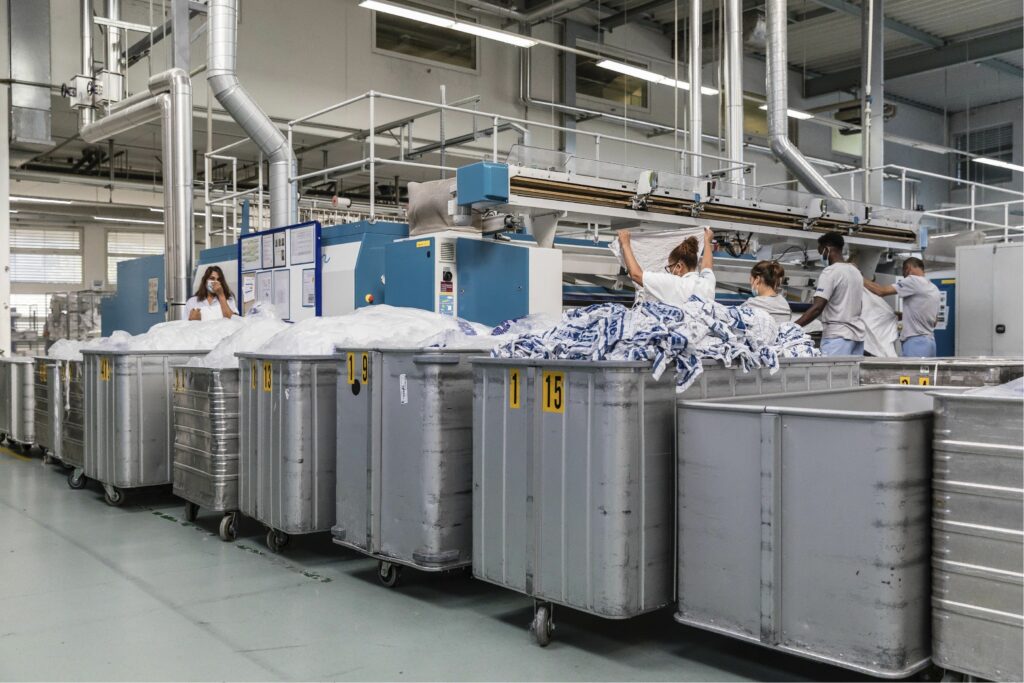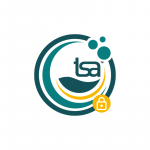The new report explains how the laundry industry is developing its sustainability roadmap
The Textile Services Association (TSA) has released its sustainability report that outlines the industry’s journey to a sustainable future where industrial laundering thrives on radical innovation to decarbonise the industry’s primary energy demands. The report also shines light on the importance of actively engaging with its global value chain and the critical role played by people at all levels to make a lasting difference.
The report was developed and overseen by the TSA’s Sustainability Steering Group in collaboration with their consulting partner, Grain. The bold and evolving approach lays out ambitions for the laundries and their value chain to stay ahead of the UK government’s plans for net-zero targets. The goals, targets and KPIs for this year include launching a newly developed carbon footprint measurement tool which will help the industry measure its footprint with consistency and comparability.
Laundry is one of the oldest industries in the world, and the inherent nature of the operation is a circular model. The industry always aims to wash textiles as many times as possible while maintaining the functionality of the linen. The report outlines how the TSA can inspire the industry to raise the standards by adopting a holistic approach to developing sustainable practices in the industry. This means placing equal emphasis on issues like employee well-being and training in addition to working with suppliers and clients to reduce waste throughout the commercial textile supply chain.

The TSA and its members have been focusing on efforts to improve sustainability for many years. Since 2012, the industry has reduced the energy used to process textile products per kg by 31% and water usage by 60%. The TSA developed initiatives like the Infinite Textiles Scheme which provides a platform to aggregate the national textile stock and bring together charities and innovative technology solutions for reuse and to employ fibre-to-fibre recycling options. In addition to this, the TSA has been collaborating with the laundry’s end-user sectors, such as hospitality, manufacturing and the NHS and care sector, to develop resources aimed at educating housekeepers, managers and purchasing teams about the importance of caring for textiles to improve the longevity of these products.
Efforts like this will form a vital part of the industry’s ongoing evolution as laid out in the report, as the initiatives will have a significant impact on the Scope 3 emissions, not just for the laundry industry but also the industries such as hospitality that rely on it.
The release of the report is the first step in the TSA’s sustainability journey for 2024 and beyond, which will include the carbon footprint measurement tool. The latter will provide a toolkit for commercial laundries to help them measure and develop their own plans for further decarbonisation and sustainability.
“The laundry industry has long recognised the importance of building a sustainable future,” says David Stevens, CEO for the TSA. “The TSA is committed to continuing to help its members to not just meet but exceed their targets in this area. While there will undoubtedly be challenges the report clearly shows the opportunities for businesses willing to invest in sustainability.”
The TSA is also holding a Sustainability showcase day on March 7th 2024 which will provide a chance for the industry to get together to discuss the current state of play and plans for the future.
The complete 2024 sustainability report is available to download from the TSA’s website.
If you have any queries, please do not hesitate to get in touch with us either via email or phone:
T +44 (0) 20 3151 5600






